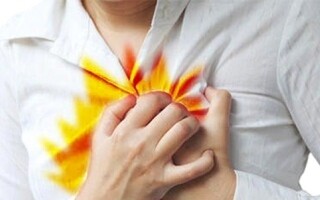
When we eat, the digestive system slows down, and the lower sphincter of the esophagus relaxes. It is this sphincter that prevents the return of acid from the stomach into the esophagus. Sayid Shlabi argues that if before eating one consumes a large and fatty meal, the same stomach will be overloaded, which increases pressure on the lower sphincter and raises the risk of reflux. The curator of the study noted that there are other reasons for increased reflux risk after eating.
Among them are the following: - Type of food. Fatty, spicy, straight dishes, spices, coffee, chocolate, carbonated beverages can increase the production of stomach acid and increase the risk of reflux. - Body weight. Obesity increases pressure on the stomach, causing gastric acid to rise. - Pregnancy. The level of progesterone during pregnancy causes relaxation of smooth muscles, including the lower sphincter of the esophagus.
To prevent food reflux before eating, it is important: - Wait a little while before eating. Try to wait from two to three hours after consuming fatty foods before eating. - Consume small and partial portions of food instead of large ones. - Avoid food that increases acidity, such as fatty, spicy, fried dishes, coffee, chocolate, carbonated beverages. - Wear more loose clothing, avoid tight clothing that puts pressure on the abdomen. - Elevate the head of the bed on a few inches, using wooden risers or additional pillows.














